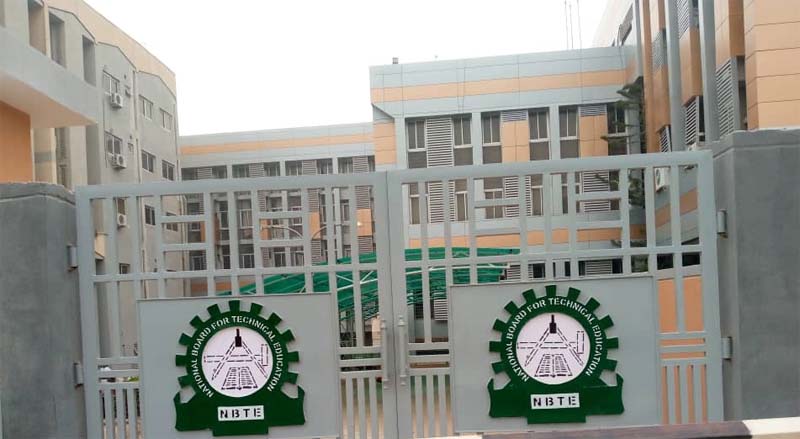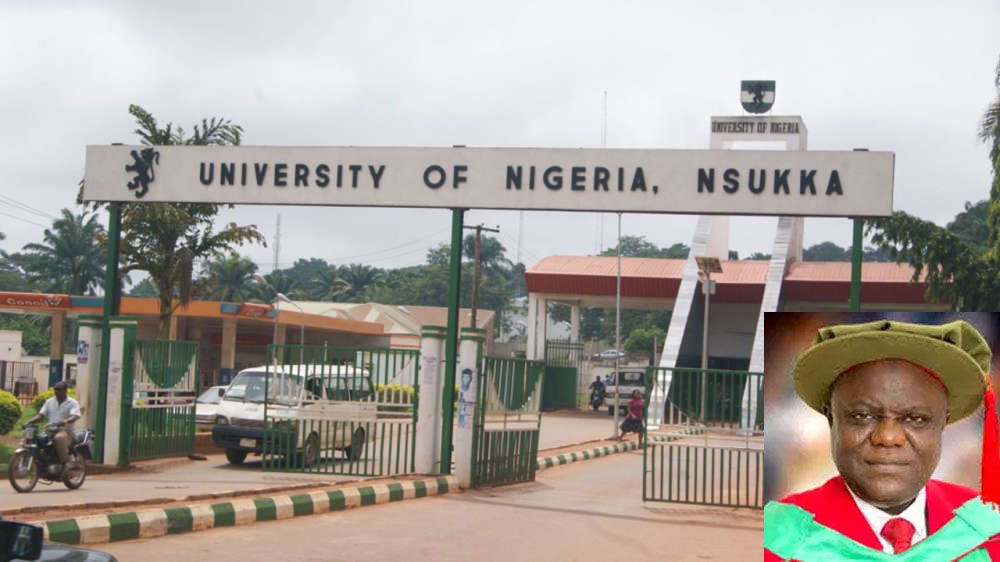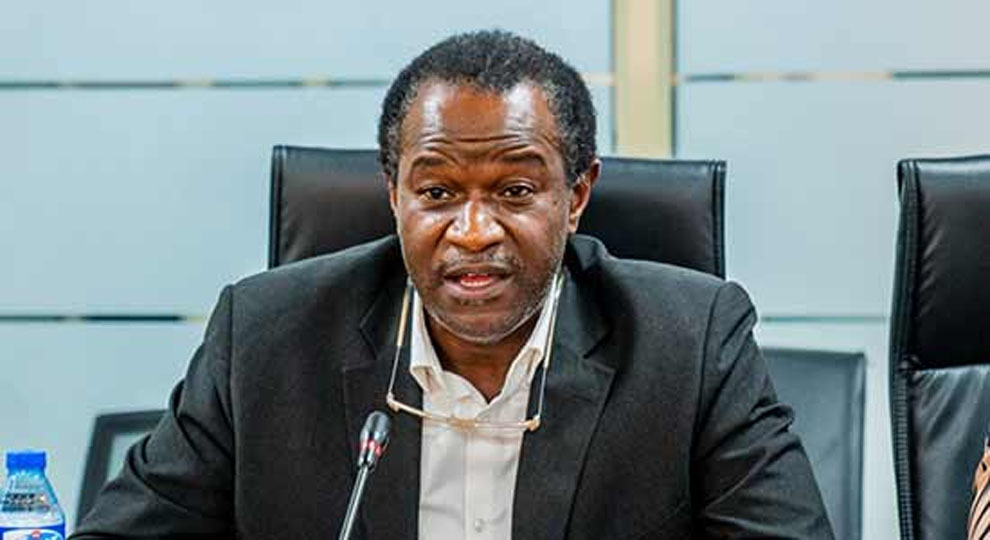“I will be firm, fair, and transparent in the discharge of my duties. UNN must not lag behind in the current technological revolution, characterised by the rivalry between OpenAI and DeepSeek,” he assured.

NBTE seeks more funding, conversion of 60% of Nigerian varsities into Polys
The National Board for Technical Education (NBTE), has advocated more funding and conversion of 60 per cent of Nigerian Universities and Polytechnics to bridge the gap in skills deficiency amongst graduates.
The Executive Secretary (ES) of NBTE, Prof Idris Bugaje, made the call on Monday in Kaduna at the North-West zone national workshop on the reviewed entrepreneurship and skills development curricular for entrepreneurship educators in Nigerian Polytechnics and similar institutions.
The theme of the workshop was ‘New approach to entrepreneurship curricular delivery’.
Bugaje, represented by his Special Assistant, Dr Ibrahim Bashir, said, ”For every Engineer produced by a university, he requires at least five technologists, 10 technicians and 20 artisans in executing projects.”
He, therefore, said that the artisans and technologists were products of Polytechnics, which called for a reverse in funding process by the Tertiary Education Trust Fund (TETfund) to pump more funds into polytechnics.
“As a serious nation and trying to do what is expected, we should be promoting skills and not theories.
“We should be thinking of chunning out the skillful youth population out of our higher institutions.
“Our people are always thinking of migrating to Europe and Asia, some through deadly routes. If those people are well skilled with the necessary certification, they will be given red carpet reception wherever they go,”he said.
READ ALSO:
Bugaje, therefore, wondered why Nigerians were more passionate about degrees instead of skills.
He stressed the importance of curriculum, stating that it is the foundation of any good programme that wants to be created.
Bugaje said the present curriculum being administered to students in the polytechnics was developed in 2007.
According to him,.there have been a lot of changes over the years, where the mantra of the NBTE was centred on skills and not degrees.
Bugaje said that the NBTE’s advocacy on skills was not in any way discouraging acquisition of degrees, but should be complemented by skills.
“Without skills, one is likely not going to fit into the contemporary competitive world. Skills are now the most important global currency of the world,”he said.
The executive secretary described the uproar by some actors about the ‘top up degree’ programme by the NBTE as uncalled for and unnecessary/
Bugaje stated that converting 60 per cent of Nigerian universities into polytechnics was the right thing to do to be seen as serious in the educational sector.
Earlier, the NBTE’s Director, Curriculum Development Department, Dr Musa Koko, said the workshop was the first in its series and the second since 2007.
He said that the last efforts in developing the entrepreneurship curriculum, teachers guide and training manual was to kick start the Entrepreneurship Development Programme (EDP) in all the Technical, Vocational Education and Training (TVET) Institutions.
Koko said the curriculum development was aimed at improving programme delivery and graduates’ improvement towards self-reliance.
READ ALSO:
He explained that the training, which was held between 2007-2010, targeted 300 lecturers with a visit to Songhai Centre in Port Novo, Benin Republic.
“It is important to note that nearly seventeen years of implementation of the EDP project in our institutions has made it overdue both in content, approach and delivery.
“The board under Prof Bugaje had rolled out a decisive policy direction aimed primarily to
address TVET position in skills delivery which include the review of all aging curricula in all the
programmes and especially the EEd,”he said.
Koko added that the review was necessitated because of the time and the need to reinvigorate the spirit of creativity, innovation and entrepreneurship for all TVET Institutions and its graduates.
He however, said that presently, the focus was widened because the number of Instructors and lecturers targeted was nearly 4000, with the North- Central alone having about 350 by estimate.
Koko, therefore, said the workshop was to bring the lecture’s attention to the new approach to entrepreneurship delivery.
“This is because the review has addressed the content, pedagogy and the practical requirement in terms of skills and trades as well as award and certification of graduates”,he said.
Koko urged the participants to grant the workshop the necessary attention it deserved.
The News Agency of Nigeria (NAN), reports that the entrepreneurship workshop was organized in conjunction with Danglo Management and Financial Limited while it was sponsored by TETfund.
(NAN)

UNN appoints Prof Olayiwola Usman as first Yoruba DVC (Academics)
The University of Nigeria, Nsukka (UNN) has appointed Professor Kamoru Olayiwola Usman, a Yoruba Muslim from Oyo State, as Deputy Vice-Chancellor (Academics), marking the first time in the institution’s history that a person of Yoruba descent has held the position.
The appointment, made by the Acting Vice-Chancellor (Ag. VC), Professor Oguejiofo T. Ujam, is part of ongoing reforms aimed at fostering inclusive governance and restoring the university’s academic excellence.
In a statement issued yesterday in Abuja, the university reaffirmed its commitment to merit-based leadership and national unity.
Professor Ujam stated: “The appointment of Professor Usman reflects our resolve to prioritise competence over sectional considerations. It is imperative that we sustain this culture of inclusivity and meritocracy to move the university forward.”
In addition to Professor Usman’s appointment, the Acting VC also named Dr Mansur Adebowale Saddiq as Acting Director of the Medical Centre, further demonstrating his commitment to promoting excellence over sectional interests.
Both appointments have been widely welcomed by scholars and students from diverse backgrounds, recognising them as steps towards strengthening national unity within the institution.
READ ALSO:
Professor Usman, who succeeds Professor Urama, holds a PhD in Mathematics Education and previously served as Provost of the Federal College of Education (Special), Oyo State, from 2015 to 2023.
A distinguished academic, he is a fellow of the Mathematical Association of Nigeria and a member of several professional bodies, including the National Institute of Policy and Strategic Studies and the Nigerian Educational Research Association. His initial tenure as DVC (Academics) will last for two years, with the possibility of renewal.
Meanwhile, the statement also highlighted that during a recent University Senate meeting, Professor Ujam emphasised the collective responsibility of repositioning UNN as a centre for ethical and innovative learning.
“A collective effort is required to place the institution on a steady path towards ethical and innovative learning. UNN must regain its pride of place as Nigeria’s premier university. We must rid the system of narrow-minded sectionalism and divisive tendencies that have eroded the enabling environment for research, comparative studies, and the adaptive application of new knowledge,” the statement read.

FG to pay corps members backlog of delayed N77,000 allowance
The Federal Government has promised to pay the backlog of the new ₦77,000 monthly allowance to members of the National Youth Service Corps (NYSC).
The corps members’ allowance was increased from ₦33,000 to ₦77, 000 in September 2024.
However, the new rate has yet to be implemented.
Minister of Youth Development, Ayodele Olawande, on Monday said serving corps members and those in the scheme when the increment was announced in September 2024 would receive a backdated payment.
He gave the assurance when he was featured on Channels Television’s Politics Today.
He said, “You saw the new DG saying that you will get it, and they’re asking him a question ‘What about those that are going out now, are they going to receive it [backlog]?’ He said ‘We have your details’,” the minister said.
“The backlog, we will work on it and make sure it is paid. It may not be immediate but it will happen.”

Why postgraduate students are ineligible for FG loan – NELFUND
The Nigerian Education Loan Fund (NELFUND) has clarified the eligibility criteria for the scheme, explaining why students pursuing post-graduate programmes are not qualified to apply for the facility.
Managing Director of the Fund, Akintunde Sawyerr, gave the revelation while speaking on TVC’s Breakfast Saturday.
Sawyerr also addressed concerns regarding postgraduate students’ eligibility for the loan, explaining that the facility is currently only available to students pursuing their first degree.
“The way the President has set this up and the way he has insisted that this must work is that you don’t need to know anybody to access this loan. And that’s what we are doing. No connections, no long leg, no man-know-man. We are not going to allow it to happen. The President wants us to completely democratize education.”
Although repayments have not yet been received, the Managing Director assured that the Fund is developing a robust repayment structure to facilitate timely and effective loan repayments.
He said currently, postgraduate students are not eligible to apply for the loan, as the primary focus is on supporting students pursuing their first degree.
Sawyerr, however, offered a glimmer of hope for postgraduate students, indicating that they may be eligible for the loan facility in the future.
“Post-graduate students can’t apply for this loan. We have a lot of people in this country who are just trying to get on the first rung of the ladder as far as tertiary education is concerned. The funds we have are focused on those people who are looking for their first opportunity.
READ ALSO:
“I congratulate those who have graduated who are doing their Master’s or PhDs, it’s fantastic. At some point in the future, we will be able to fund them. Today, we are looking for those who need us most. They are the people we want to support.”
He emphasized that while plans exist to extend financial support to postgraduate students, the immediate priority remains assisting undergraduates who face financial difficulties.
The Fund is committed to ensuring that students do not drop out of tertiary institutions due to lack of funds, and future adjustments to the loan scheme will be considered based on available resources and policy direction.
According to the Managing Director, revealed that more than 271,000 Nigerian students pursuing tertiary education have received a financial lifeline through the Federal Government’s Student Loan program since its launch in May 2024.
“Nigerian students are reacting extremely positively to the initiative. And as more disbursements happen, they are becoming more trusting. One of the interesting things going on at the moment is that President Bola Tinubu is restoring trust in the government. The students are receiving it well. We are transparent about what we are doing.
“In total, to date, we have about 271,000 Nigerian students who have either had their fees paid or their fees plus upkeep,” he noted.
As of Saturday, March 22, out of 521,000 students who have registered for the loan facility, approximately 438,000 have submitted their applications.


Breaking: Moon sighted in Saudi, UAE, others, Eid-Fitr holds Sunday


Rivers administrator Ibas fires Fubara’s political appointees


JUST-IN: Ex-Oyo gov Ajimobi’s first child Bisola dies At 42


FG declares public holidays for Eid-el-Fitr


EFCC re-arraigns son of ex-PDP chairman for alleged N2.2bn oil subsidy fraud


Niger coup leader sworn in as president for five years


Natasha: Murray-Bruce slams Atiku, defends Akpabio


AI will replace doctors, teachers, others in 10 years – Bill Gates